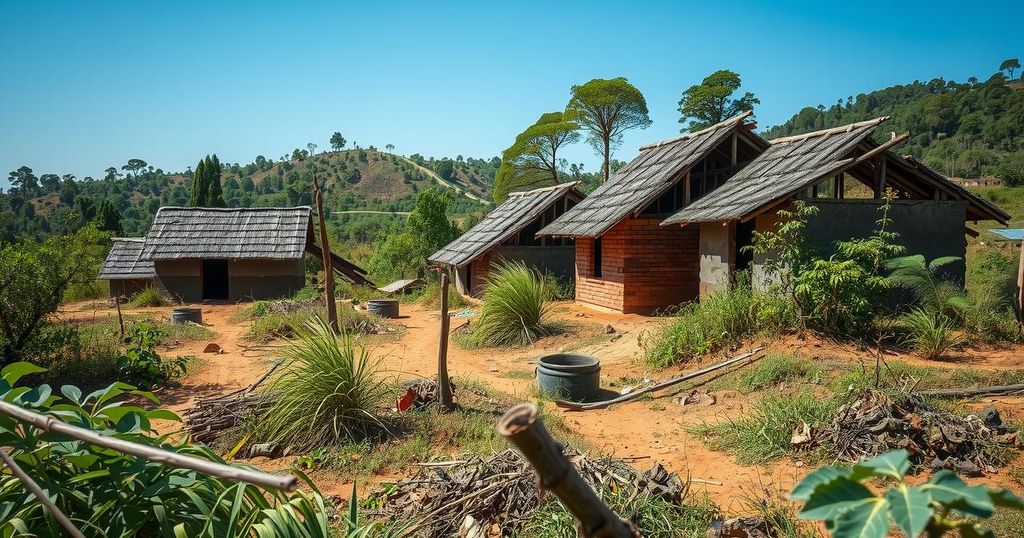DRC Conflict Displacement: Rising Hunger and Resilience Amidst Adversity

The ongoing conflict in the DRC has resulted in over five million displaced individuals facing extreme hunger and hardship. The World Food Programme is providing critical assistance amidst a severe funding shortfall. Despite some positive outcomes, urgent resources are needed to adequately support the growing population in need.
Linda L. has returned to her village of Bweremana, North Kivu, where she encounters a home in disarray and uncertain future amid ongoing violence in northeastern Democratic Republic of the Congo (DRC). Receiving assistance from the World Food Programme (WFP), she faces the challenge of rebuilding her life after losing numerous belongings and livestock. “I have to start again,” she expresses, emphasizing the enormous needs of those affected by the conflict.
The humanitarian crisis in DRC has led to the displacement of over five million individuals, many of whom have been forced to return to destroyed homes and unlivable conditions. The situation is compounded by extreme food insecurity, with more than 10 million people in eastern DRC experiencing acute hunger, according to a recent study. The escalation of violence has only worsened these already dire circumstances.
Eric Perdison, WFP’s Regional Director for Southern Africa, remarks, “The humanitarian situation in the DRC is deteriorating at an alarming rate.” With a significant funding shortfall hindering efforts, WFP aims to support 6.4 million people but requires approximately $399 million in aid over the next six months to fulfill this obligation.
Despite limited resources and ongoing security issues, WFP has assisted over 700,000 individuals in DRC this year. Perdison states, “We are committed to do more to support those at risk … but we urgently need more resources.” The challenge grows as economic instability drives inflation up, severely impacting the prices of essential food items.
Linda’s reliance on WFP aid underscores its critical importance for displaced families, as she notes, “This is helping us combat hunger while we wait for our harvests from farming.” After fleeing to Goma due to renewed conflict, Linda returned to find her home stripped of all necessities. She describes her struggle to resettle under such trying circumstances.
Meanwhile, in the town of Sake, another mother named Safi also confronts the aftermath of displacement. With her husband missing and their home reduced to ashes, she struggles to provide for her family as a roadside hairdresser, relying on WFP assistance to survive. Safi highlights the overwhelming needs of families affected by the conflict, stating, “The needs are just too great; the conflict left many widows.”
The efforts of WFP in eastern DRC are supported by a diverse array of donors including Belgium, Canada, Denmark, the European Union, Germany, Japan, Norway, Sweden, Switzerland, UNCERF, the United Kingdom, the United States, and the Stop Hunger Foundation. These contributions are essential for addressing the severe humanitarian crisis and supporting vulnerable populations in the region.
In summary, the humanitarian situation in the Democratic Republic of the Congo is dire, with millions displaced and facing extreme hunger due to ongoing conflict and economic instability. The World Food Programme is actively working to assist affected individuals, yet faces significant funding challenges. The resilience of families like Linda and Safi, combined with critical support from donors, underscores the urgent need for continued humanitarian efforts to address the profound crises in eastern DRC.
Original Source: www.wfp.org







